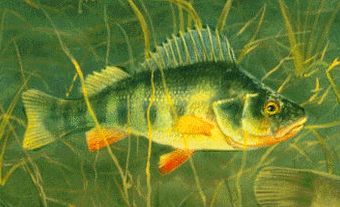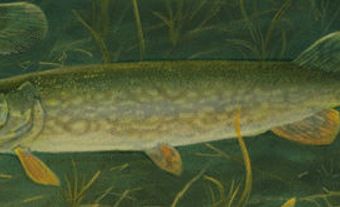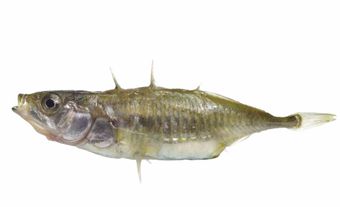
Grayling is the common name for freshwater fishes of class Actinopterygii, family Salmonidae (salmon), subfamily Thymallinae (sometimes elevated to family rank). Graylings are most easily identified by their very large dorsal fins.
Distribution and Habitat
Arctic grayling (Thymallus arcticus), the only species in Canada, is one of 4 species widely distributed throughout the northern hemisphere. In Canada, it is confined to areas west of Hudson Bay, including northern portions of Manitoba, Saskatchewan, Alberta and BC, as well as the Yukon, the Northwest Territories and Nunavut, exclusive of the Arctic Archipelago. It also has a limited distribution in the Flathead River in southeastern BC and the Belly River in southeastern Alberta. Grayling occupy a wide variety of freshwater habitats but, although they sometimes enter brackish waters of coastal lagoons, they are generally intolerant of marine water.
Reproduction
Typically, adults spawn and young are reared in small, warm streams. They leave in fall to overwinter in larger streams or lakes or in the vicinity of perennial springs. Some populations are highly migratory, eg, some individuals of a population spawning in the upper reaches of the Donnelly River, NWT, overwinter in Great Bear Lake, over 350 km away. During the short northern summer, grayling feed voraciously on a wide variety of foods. They grow relatively rapidly until they reach maturity. Thereafter, growth slows as much of their energy intake is committed to reproduction. In the Far North, grayling sometimes live for 20 years. Grayling spawn in spring, often migrating under ice to reach spawning locations as early as possible. No nest is prepared. Eggs may fall among cracks between large rocks or the vigorous quivering of the spawning fish may deposit fine materials over them.
Significance of Fishery
Graylings are a prized sport fish, easily taken by fly-fishing or spinning gear, but are highly susceptible to overfishing. In some areas, populations have declined dramatically because of excessive angling. Although sometimes taken by Native commercial fishermen, grayling are not especially sought after.

 Share on Facebook
Share on Facebook Share on X
Share on X Share by Email
Share by Email Share on Google Classroom
Share on Google Classroom



